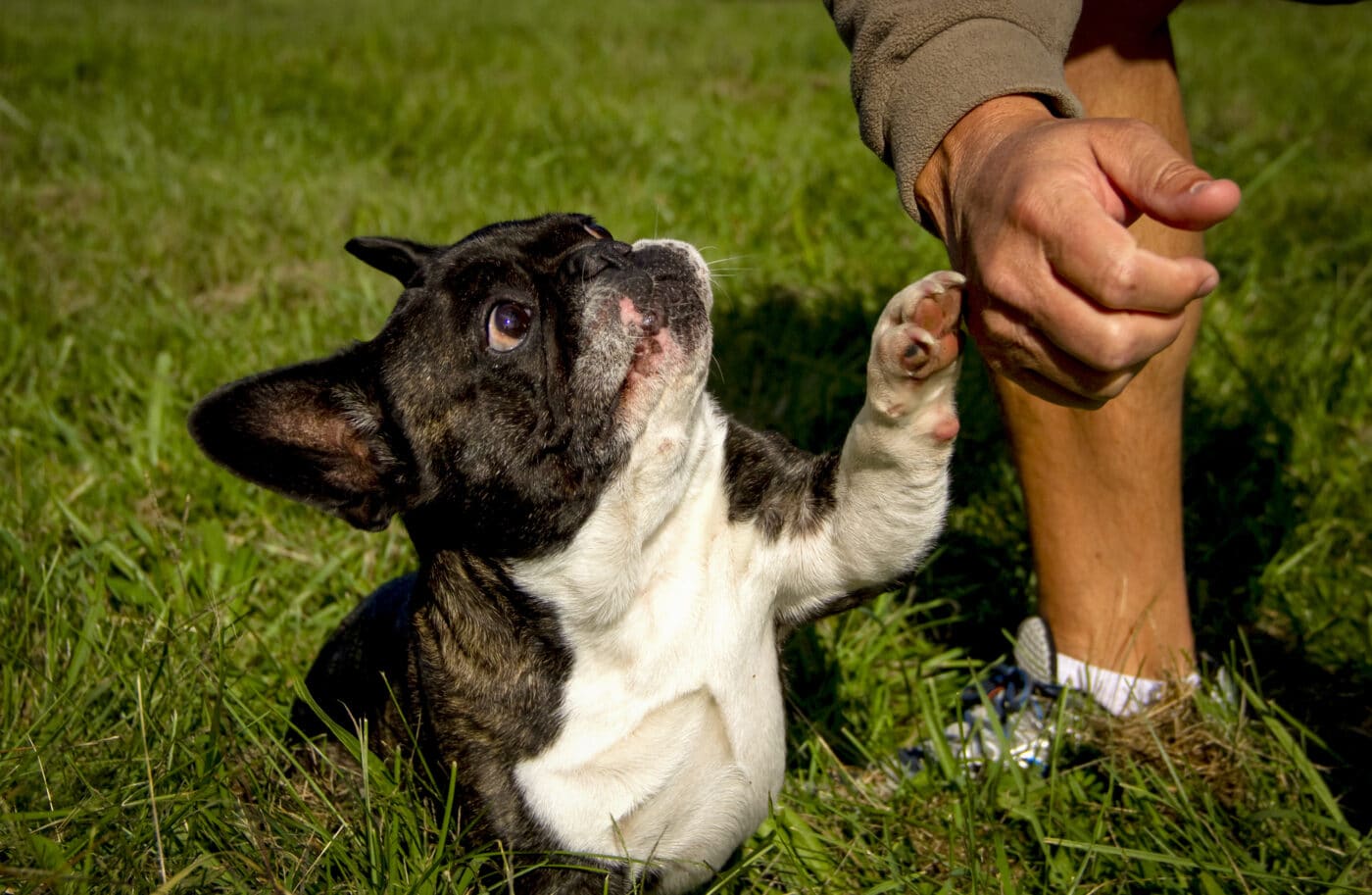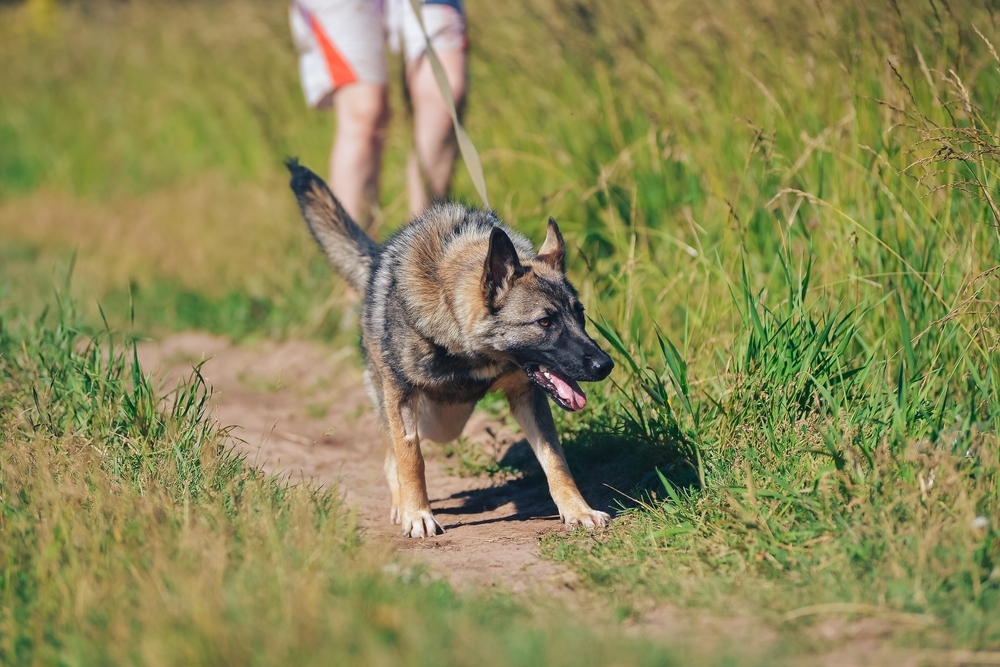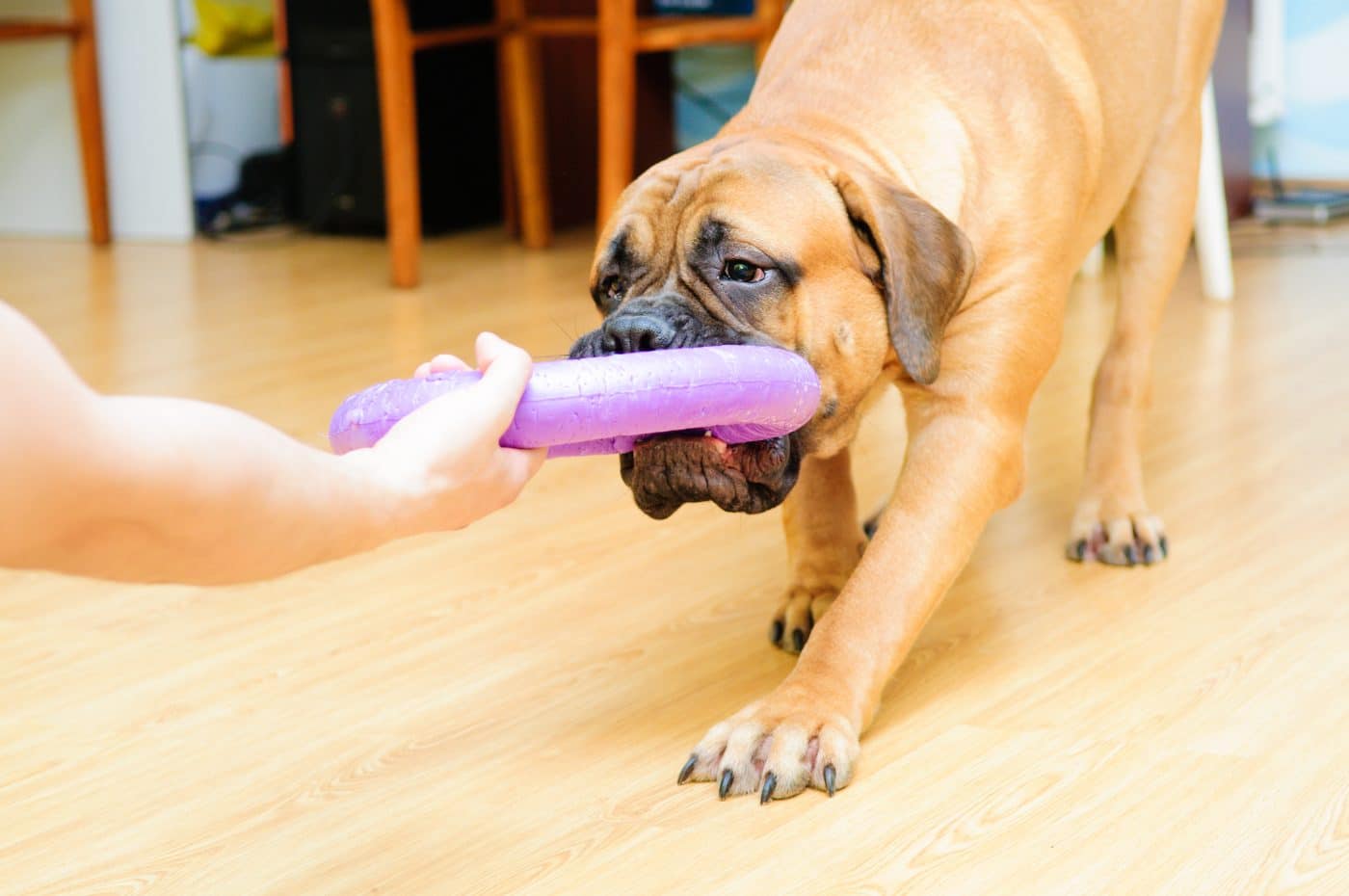 Shutterstock
Shutterstock
Dogs thrive on activity, and while some have more energy than others, regular exercise is essential for a happy, healthy life. But since they can’t tell you directly, they use their actions to drop hints. If your dog is restless, acting out, or suddenly full of energy at odd hours, they might beg for more activity. Ignoring these signs can lead to boredom, frustration, and even health problems. Recognizing their signals can make all the difference—so grab that leash and get moving!
Nonstop Zoomies Indoors
 Shutterstock
Shutterstock
If your dog suddenly turns your living room into a racetrack, they likely have too much pent-up energy. Zoomies, or bursts of frantic running, are normal, but frequent episodes might mean they need more exercise. Daily walks, engaging playtime, and mental stimulation can help them release energy in a healthier, more controlled way.
Destroying Everything In Sight
 Shutterstock
Shutterstock
Torn-up pillows, chewed furniture, and shredded shoes aren’t just bad behavior—they’re signs of a bored dog. Without enough physical and mental stimulation, they’ll create their own entertainment, often at your home’s expense. Giving them plenty of exercise can prevent destructive habits and keep your pup and belongings safe.
Barking At Every Little Thing
 Shutterstock
Shutterstock
Excessive barking isn’t always about protecting their territory—it can also be a cry for more activity. A dog that barks at every sound or shadow may be restless and looking for an outlet. More exercise can help burn off that extra energy, making them calmer and less likely to bark nonstop.
Pacing And Restlessness
 Shutterstock
Shutterstock
If your dog can’t seem to settle down, constantly getting up, changing spots, or pacing, they might not be getting enough exercise. Physical activity helps regulate energy levels and promotes relaxation. Increasing walks and playtime can help them rest more easily instead of wandering the house all day.
Jumping On Everyone Constantly
 MidJourney
MidJourney
Jumping up is often a sign of excitement, but if your dog jumps on everyone, including strangers, it might mean it has excess energy. Without enough activity, it looks for other ways to let it out. More physical exercise can help reduce hyperactive greetings and make interactions more manageable.
Clingy And Begging For Attention
 Shutterstock
Shutterstock
If your dog doesn’t stop nudging, pawing, or following you around, it may be asking for something to do. While affection is normal, excessive clinginess could mean it needs more stimulation. Regular exercise helps keep dogs content and less dependent on constant interaction.
Digging Up Everything
 Shutterstock
Shutterstock
A yard full of holes or a dog scratching at furniture clearly signifies boredom. Digging can provide extra energy, especially for dogs not getting enough physical activity. More exercise and engaging toys can help prevent your pup from turning your home into a digging site.
Packing On Extra Pounds
 Shutterstock
Shutterstock
If your dog is gaining weight without a change in diet, it’s likely not burning enough calories. Just like humans, staying active is key to maintaining a healthy weight. Increasing daily movement can keep dogs fit and prevent health issues related to obesity.
Stealing And Hoarding Objects
 Shutterstock
Shutterstock
If your dog suddenly starts collecting socks, toys, or anything they can grab, they might need more mental and physical engagement. Hoarding behavior is often a sign of boredom. More exercise can help redirect their energy and reduce the need for sneaky treasure stashes.
Sleeping More Than Usual
 Shutterstock
Shutterstock
Too little activity can lead to excessive sleep. If your dog constantly naps and seems sluggish, they might not get enough movement. Regular exercise helps boost their energy and keeps them engaged throughout the day instead of snoozing it away.
Pulling Like Crazy On Walks
 Shutterstock
Shutterstock
If every walk turns into a pulling contest, your dog might have too much energy built up. A well-exercised dog is more likely to walk calmly on a leash. Adding extra activity before walks can help burn off energy, making leash training much easier.
Sudden Bursts Of Energy At Night
 Shutterstock
Shutterstock
Does your dog zoom around the house when you’re trying to sleep? If they’re bursting with energy at odd hours, they likely didn’t get enough movement during the day. More activity earlier in the day can help prevent late-night play sessions when you’re ready for bed.
Whining With No Clear Reason
 Shutterstock
Shutterstock
If your dog whines even after being fed, walked, and given attention, it may be trying to tell you it needs more exercise. Whining is often a sign of frustration, and a lack of activity can be the cause. A good workout can turn their whining into relaxation.
Digging Through The Trash
 Shutterstock
Shutterstock
Dogs with too much energy often look for ways to entertain themselves, and sometimes that means dumpster diving. If your dog suddenly starts rummaging through garbage or stealing food, they might be searching for stimulation. More exercise can help keep their curiosity focused on healthier activities.
The Classic “Walk Me” Stare
 Shutterstock
Shutterstock
If your dog sits by the door, stares at the leash, or gives you the ultimate guilt-trip eyes, it makes its request loud and clear. Dogs are great at communicating when they need something—especially more exercise. Paying attention to their cues can help keep them happy and healthy.
The Silent Plea Of A Restless Pup
 MidJourney
MidJourney
Exercise is more than burning energy—it’s key to a happy, healthy dog. If your pup shows these signs, they’re asking for more activity. Regular movement prevents boredom, curbs bad behavior, and keeps weight in check while deepening your bond. Plus, staying active benefits you, too! The next time those big, hopeful eyes beg for attention, take the hint—grab the leash, step outside, and make both your days better with some well-earned exercise. A little movement goes a long way for a happy pup!





